It’s been eight months since I’ve had a slice of bread, a piece of cake, or pancakes. Wait, that’s not quite right. I did eat bread made with almond flour, the cheese part of a cheesecake and buckwheat crepes. What I’ve been purposefully avoiding recently is wheat, as well as rye, barley, couscous, spelt and anything that contains the above. I am gluten-free now.
I am gluten-free. Mostly repeating this for myself.
How did I get here? How did I, a person who’s running a food and travel blog, is supposed to be adventurous and all-consuming, went from standing in line for Dominique Ansel’s cronut at 7 am under pouring rain to interrogating waiters on the subject of bread crumbs being present in my cutlets?
The answer is rather easy, even if it was shocking at first — I was diagnosed with Hashimoto’s thyroiditis, an autoimmune disorder that causes hypothyroidism. In short, my thyroid gland isn’t producing enough hormones, so I have to take supplements. Gluten is known as one of the most common triggers for this condition which is why I chose to avoid it.
“Chose to avoid it” I did, after about a year spent in denial. It is a strange thing to be told that you have a chronic disease and will have to take medicine every day for the rest of your life at thirty two. A myriad of questions is flooding your head: Why me? What next? If I am diagnosed with an autoimmune disorder in my thirties, what happens when I turn forty? Fifty?
My first reaction was to shove the questions into the furthest, darkest corner of my brain. Every morning I took the pills the doctor prescribed which was the extent of my willingness to accept the new reality thrown at me. For that whole year I hadn’t told anyone about the diagnosis but my husband, nor did I do any research on the topic. Reading, talking or even mentioning it made me anxious. And I did not want to be anxious on top of being sick.
The way I learned I have Hashimoto’s was like one of those stories famous actors tell about how they started in the business. You know, where they didn’t really want to be actors, but their best friend did, so they auditioned just to keep the poor guy company. And then — bam! — they got the part.
Just like that, my husband was insisting on doing a full medical check up and I just went along, sure the only possible prescription I’d get on the way out was vitamin D. And then — bam! — the ultrasound of my thyroid gland didn’t look good, so the doctor ordered additional blood tests. I was to call the next day and ask for results.
I was on a daily walk with Kroshka, my then-seven-month-old, when I called the doctor’s office. The nurse, who answered the phone and was supposed to schedule an appointment, decided to give her opinion on the topic. The opinion, loosely paraphrased, was that my results looked truly horrible, and what was I thinking breastfeeding my child when it all passes down with milk. She then told me I should come see the doctor in two days and hung up.
I burst into tears in the middle of the street. Not only did the blood work look bad, but I’d been passing whatever it was I had to my son and would most likely have to stop breastfeeding abruptly which was never the plan.
At home, I let my husband do online research which quickly revealed there was, in fact, no danger in breastfeeding with Hashimoto’s. Still, those two days before the appointment were some of the longest in my life.
A Russian saying “like thunder amid clear skies” best describes the moment the doctor broke the news to me. How could I be sick when I had no symptoms? Oh, but I did. I just thought those symptoms are what being a new mother is like. The most common, for instance, is extreme exhaustion. Where exactly does one draw the line between being very tired because of sleepless nights and being extremely tired because of medical problems?
Looking back I realize I was way too tired. I’d wake up in the morning dreading the upcoming day — I could hardly make myself get up from the bed. I’d complain left and right that I am tired, so so tired. But when it comes from a new mother, most people’s response is “hang in there” and “the first year is the hardest”. Nobody suspects there’s anything more to it. Neither did I.
Another symptom is gaining weight and difficulty losing it. Show me a new mother who doesn’t have those problems. Hair falling out? Typical both after giving birth and when one has thyroid issues.
Once I started taking medicine, the symptoms subsided. Which is probably why it took me a full year to read about the disease on my own and implement changes. I believe it was the 8th of May 2021 when my gluten-free journey began. It is much less difficult than I imagined, especially in a developed country like Germany where supermarkets are filled to the brim with alternatives.
I used to have wheat and wholewheat flours in my pantry. Now my shelves are stocked with rice flour, cassava flour, buckwheat flour, coconut flour and oat flour to name a few. I deliberately decided to think less about what I can’t have and more about the world of unexplored possibilities.
The one real problem is German bread. I once read that Germany boasts over three thousand types of bread, but, as my own research shows, gluten-free is not one of them. Not a single one of “normal” bakeries has gluten-free options: not bread, not buns, not cakes. One could buy gluten-free bread at supermarkets, packed in plastic and meant to last for weeks on end. I do that. It’s not the same.
Letting go of bread was probably the hardest part of turning gluten-free. On the home page of my blog is my photo along with a short “about me” paragraph:
“I write stories about food, travel, and things that matter like sustainability and my mild obsession with Hollywood actors. Home is Russia, but I currently live in Germany and eat rye bread with butter every day.”
Quite a few statements in this bio are outdated: I don’t write about sustainability anymore, nor am I mildly obsessed with Hollywood actors. The former is a pity, the latter is probably for the better. The most important part of this description — which is why I put it in the end for emphasis — is the part about bread and butter. The fact that I didn’t correct it eight months into my gluten-free journey goes to show how much eating bread (or anything I want for that matter) is connected to my identity.
How am I supposed to write about food when I can’t have bread, pasta, pastries, and a whole bunch of other unexpected ingredients like couscous and soy sauce? How will I recommend restaurants if the only dish I can order is salad? What about the recipes for Russian cakes and pastries I’ve been planning to develop and share?
Those questions were burning a hole in my brain, but until I knew the answers I couldn’t share my new lifestyle publicly. On the one hand, I didn’t want to admit I am not the kind of adventurous eater I used to be anymore. On the other, not talking about such a major change in my life felt untrue. So here we are.
I don’t eat gluten or cook with gluten. Mostly. When we go to restaurants I order as many gluten-free dishes as I can find on the menu and ask if other ones could be modified to fit my diet. If something looks particularly interesting, I implore my husband to order it and then take a bite. Surprisingly, a bite can be incredibly satisfying.
I am planning to continue sharing Russian-inspired recipes, many of which are naturally gluten-free. And if I ever crave Napoleon, the Russian cousin of the French mille-feuille, a flakey multi-layered cake that most definitely has a ton of wheat flour, I’ll bake that too, have a bite and share the recipe with you. Or I’ll develop a gluten-free Napoleon. People must be searching for that. I can’t be the only woman madly in love with gluten, sentenced to never have it again.



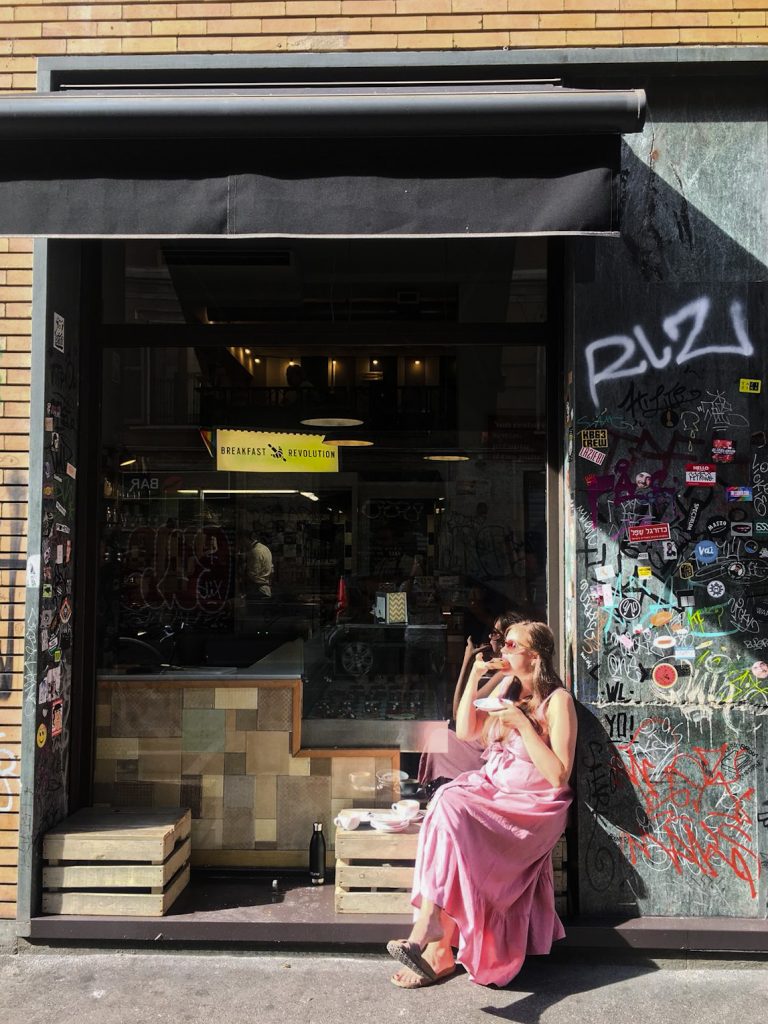





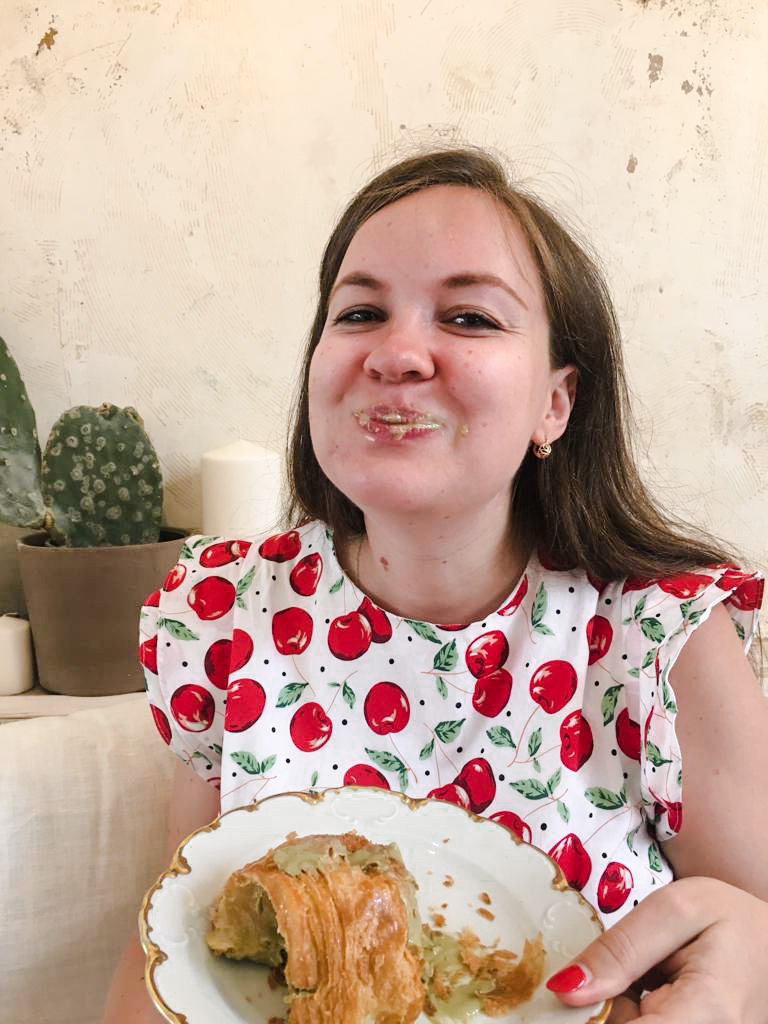

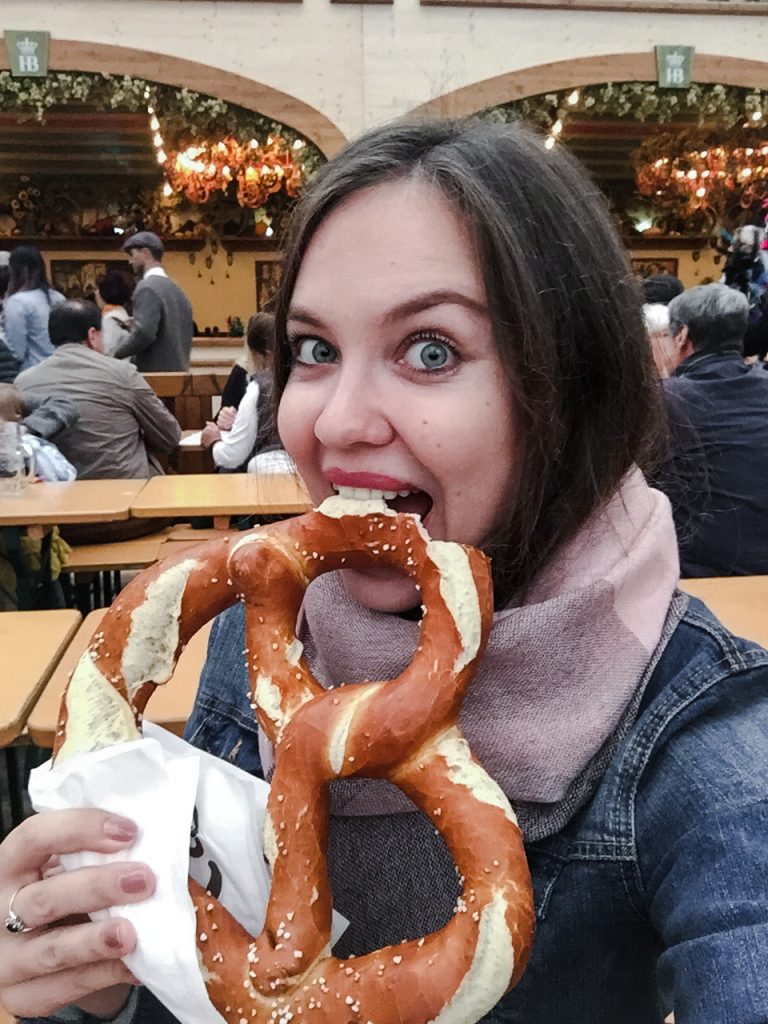

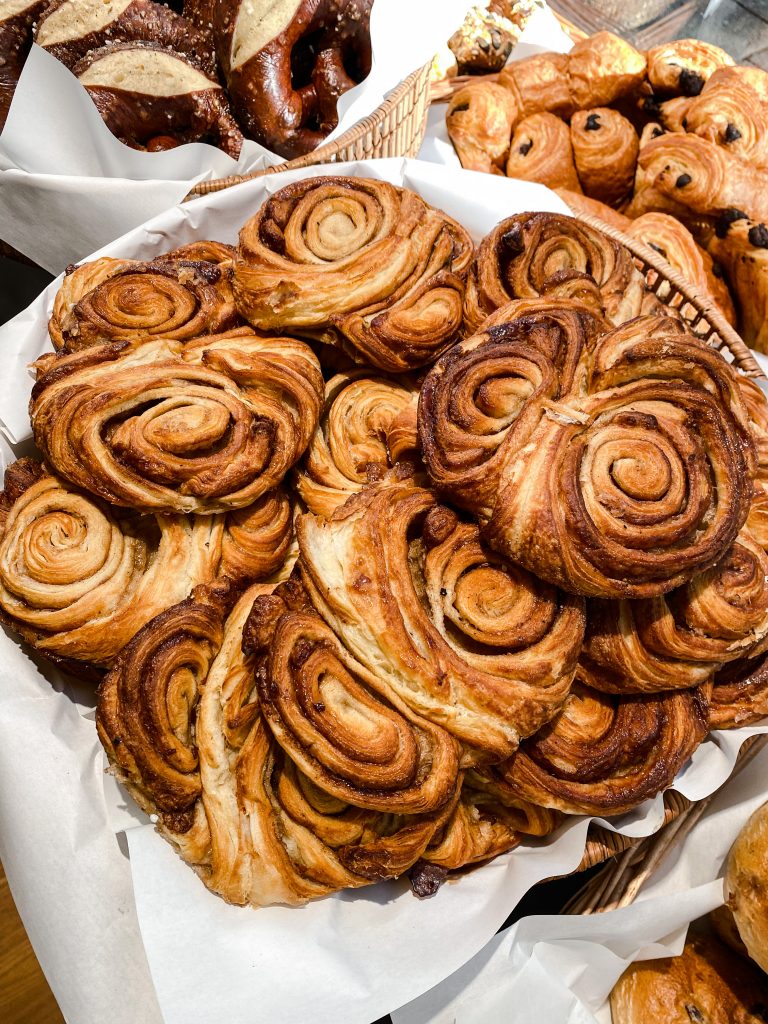
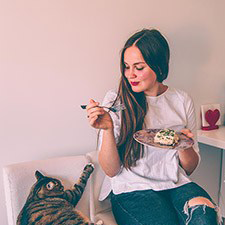
My jaw dropped when I read you stopped eating gluten because of Hashimoto’s! I thought you’d say celiac! I was diagnosed with hypothyroidism a long time ago but nobody mentioned Hashimoto to me until a few years later. Only recently did I realize how bad gluten is for our condition – I’m glad I found your posts/blog post gluten. I’m excited to read about new possibilities. And yes, I’ll forever mourn for real bread.
Thank you for sharing, Carolina!
I think I got lucky. My best friend is into nutrition and wellness, she was the one to send me links to podcasts and articles about the link between hypothyroidism and gluten intolerance. But it’s definitely not as commonly known as it should be. When I directly asked my doctor whether I should change my diet, she replied “no”. It’s good that you have come to learn about the influence of gluten eventually. As they say, better late than never. Real bread is something I miss dearly!